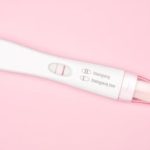Pregnancy tests are a common tool used to confirm or rule out the possibility of pregnancy, but many people wonder, “Can pregnancy tests be wrong?” This article will delve into the intricacies of pregnancy testing, including how they work, factors that can affect results, early testing accuracy, medical conditions that can impact results, tips for ensuring accuracy, and the importance of seeking professional confirmation.
When it comes to pregnancy testing, it’s essential to understand the purpose behind these tests. Whether taken at home or in a healthcare setting, pregnancy tests are designed to detect the presence of a hormone called human chorionic gonadotropin (hCG) in a woman’s urine or blood.
This hormone is produced shortly after the fertilized egg attaches to the uterine lining and is considered a sign of pregnancy. However, despite their widespread use, many individuals question whether a pregnancy test result could be incorrect.
In this article, we’ll explore how different types of pregnancy tests work and provide insights into the scientific mechanisms behind how they detect hCG. Additionally, we’ll discuss various factors that can potentially influence the accuracy of these tests and highlight the importance of following test instructions carefully for reliable results.
If you’ve ever wondered about the potential for error when taking a pregnancy test and want to gain a better understanding of how to ensure accurate results, this article is for you.
How Pregnancy Tests Work
Pregnancy tests are designed to detect the presence of human chorionic gonadotropin (hCG) in a woman’s urine or blood. This hormone is produced by the placenta shortly after a fertilized egg attaches to the uterine lining, making it an early sign of pregnancy. When this hormone is detected, it generates a positive result on the test, indicating pregnancy. There are two main types of pregnancy tests: urine tests and blood tests.
Urine Tests
Urine tests are the most common type of pregnancy test and can be easily done at home. These tests typically involve holding a test strip in your urine stream or dipping it into a sample of your urine. The chemical strip contains antibodies that react to the presence of hCG, resulting in a change in color or another indication of a positive result.
Blood Tests
Blood tests for pregnancy can be done at a doctor’s office or healthcare clinic. They measure the level of hCG in your bloodstream and can provide more accurate results than urine tests, especially in early pregnancy. Blood tests can detect lower levels of hCG and may be recommended if there is uncertainty about the results of a urine test or if early confirmation is needed.
It’s important to note that while both types of pregnancy tests are designed to be highly accurate, there can pregnancy test be wrong due to various factors that may affect the results. Therefore, understanding how these tests work and what influences their accuracy is essential for anyone who may be using them to confirm whether they are pregnant or not.
Factors That Can Affect Pregnancy Test Results
There are various factors that can affect the results of a pregnancy test, leading many to wonder “can pregnancy tests be wrong?” It is important to understand that while pregnancy tests are generally accurate, certain factors can influence their results. By being aware of these potential influences, individuals can take steps to ensure they obtain the most reliable outcome from their pregnancy test.
- Timing: The timing of taking a pregnancy test can significantly impact its accuracy. For the most reliable results, it is recommended to wait until a week after a missed period before taking the test.
- Medications: Certain medications, such as fertility drugs and antihistamines, can interfere with pregnancy test results. It is important to consult with a healthcare provider if you are unsure about how your medications may affect the test.
- Test instructions: Not following the instructions provided with the pregnancy test can lead to inaccurate results. It is crucial to carefully read and adhere to the guidelines for optimal accuracy.
It is essential for individuals to consider these factors when taking a pregnancy test in order to minimize the risk of receiving false positive or false negative results. Additionally, consulting with a healthcare provider can provide reassurance and guidance in ensuring accurate results from a pregnancy test.
Early Pregnancy Testing
When it comes to testing for pregnancy, many women wonder “can pregnancy test be wrong?” Understanding how pregnancy tests work can provide insight into the accuracy of these tests, especially when taken in the early stages of pregnancy.
There are two main types of pregnancy tests: urine tests and blood tests. Urine tests, which are commonly used at home, detect the hormone hCG (human chorionic gonadotropin) in the urine. On the other hand, blood tests are performed at a healthcare provider’s office and can detect lower levels of hCG earlier in a pregnancy.
The accuracy of at-home pregnancy tests typically increases the closer a woman is to her missed period. Taking a test too early can result in a false negative, as there may not be enough hCG present in the body to be detected. To increase the likelihood of an accurate result, it is recommended to wait until after a missed period before taking an at-home pregnancy test.
In addition to timing, the sensitivity of the test and following instructions carefully can impact its accuracy. Some tips for ensuring accurate results include using first-morning urine when possible, checking the expiration date on the test, and reading test results within the specified timeframe.
- Use first-morning urine when possible
- Check expiration date on test
- Read results within specified timeframe
Medical Conditions and Pregnancy Testing
Impact of Medical Conditions
Certain medical conditions
Additionally, conditions that affect hormone levels, such as thyroid disorders and pituitary gland issues, can also impact the accuracy of a pregnancy test. It is important for individuals with these medical conditions to be aware of the potential for incorrect results and consult with a healthcare professional if there are concerns about the reliability of a pregnancy test.
Medications and Pregnancy Testing
Some medications
Chronic Health Conditions and Pregnancy Testing
Individuals with chronic health conditions such as kidney disease or liver disease may experience fluctuations in hormone levels that
Understanding how specific medical conditions can impact pregnancy testing is essential for achieving accurate and reliable results when determining one’s pregnancy status.
Tips for Ensuring Accurate Pregnancy Test Results
When it comes to taking a pregnancy test, it’s natural to question whether the results are accurate. There are various factors that can affect the accuracy of a pregnancy test, leading to false positive or false negative results. Understanding how to ensure accurate results from a pregnancy test is crucial for those trying to conceive or who suspect they may be pregnant.
One common factor that can affect the accuracy of a pregnancy test is not following the instructions properly. It’s essential to carefully read and follow the manufacturer’s guidelines when using a home pregnancy test. Improper use of the test, such as not using first-morning urine or waiting too long before reading the results, can lead to inaccurate outcomes. Additionally, certain medications and medical conditions can also impact the reliability of pregnancy tests.
To ensure accurate pregnancy test results, it’s important to use the test at the right time. Most home pregnancy tests claim to provide accurate results around the time of a missed period, but testing too early can lead to a false negative result. Waiting for at least a week after a missed period before taking a pregnancy test will help increase its accuracy.
In addition to following instructions and timing, there are other tips for obtaining reliable results from a pregnancy test. These include using multiple tests if uncertain about the initial result, choosing tests from reputable brands, and seeking professional confirmation if there are doubts about the accuracy of an at-home pregnancy test.
| Factor | Impact on Pregnancy Test Results |
|---|---|
| Not following instructions | Potential for false positive or false negative |
| Timing of test | Risk of false negative if tested too early |
| Medical conditions and medications | Possibility of inaccurate results |
Seeking Professional Confirmation
It is not uncommon for individuals to question the accuracy of their pregnancy test results, especially if the outcome is unexpected or unclear. While home pregnancy tests are generally reliable, there are instances where they can produce erroneous results.
Factors such as testing too early, not following instructions properly, or certain medical conditions can influence the outcome of a pregnancy test. Therefore, seeking professional confirmation from a healthcare provider is crucial for anyone who has doubts about the accuracy of their at-home pregnancy test.
A healthcare provider can offer a more precise and reliable pregnancy test that utilizes advanced technology to detect hCG (human chorionic gonadotropin) levels in the body, which indicates pregnancy. Additionally, they can also provide further insight into potential factors that could have affected the initial test result. By consulting a healthcare professional, individuals can gain clarity and assurance regarding their pregnancy status and receive guidance on next steps.
For those who receive a positive result from an at-home pregnancy test but are uncertain about its accuracy, seeking professional confirmation is particularly important. False positives are possible, albeit rare, and may be influenced by various factors such as certain medications or medical conditions.
On the other hand, false negatives can also occur due to testing too early in the pregnancy when hCG levels are still low. Therefore, getting a confirmatory test from a healthcare provider is essential in either situation.
One study found that up to 5% of urine-based home pregnancy tests yielded incorrect results. Thus it is crucial for anyone with uncertainties about their at-home pregnancy test results to consult with a healthcare professional for accurate confirmation and guidance.
| Reasons | Details |
|---|---|
| False Positive Results | Certain medications or medical conditions can lead to erroneous positive outcomes. |
| False Negative Results | Pregnancy tests taken too early may produce false-negative results due to low hCG levels. |
| Accuracy of Home Pregnancy Tests | Approximately 5% of urine-based home pregnancy tests yield incorrect results. |
Conclusion
In conclusion, the question “Can pregnancy tests be wrong?” is one that many individuals may have when considering the results of a home pregnancy test. Throughout this article, we have explored the science behind how pregnancy tests work, the factors that can affect their results, and tips for ensuring accurate results. It’s important to understand that while rare, false positive or false negative results can occur for a variety of reasons, including user error and certain medical conditions.
When it comes to early pregnancy testing, at-home pregnancy tests are generally reliable when used correctly. However, taking a test too early or not following the instructions can increase the likelihood of an inaccurate result. Medical conditions such as polycystic ovary syndrome (PCOS) or recent miscarriage can also impact the accuracy of a pregnancy test.
For anyone questioning the accuracy of their home pregnancy test results, seeking professional confirmation from a healthcare provider is essential. This may involve additional testing such as blood work or an ultrasound to provide a more definitive answer. It’s important to remember that while home pregnancy tests are convenient and generally accurate, consulting with a healthcare provider will provide peace of mind and ensure proper guidance moving forward.
Frequently Asked Questions
How Common Is a False Negative Pregnancy Test?
A false negative pregnancy test is not very common, but it can happen. This usually occurs when the test is taken too early or if there is a mistake in using the test. It’s important to carefully follow the instructions for accurate results.
Can You Be Pregnant and Still Test Negative?
Yes, it’s possible to be pregnant and still test negative on a pregnancy test. This could happen if the test is taken too early before there is enough hCG hormone in the body to be detected. Other factors like improper testing or expired tests can also lead to false negative results.
How Likely Is a False Positive Pregnancy Test?
The likelihood of a false positive pregnancy test is generally low, especially if the test is conducted properly. However, certain medications or medical conditions can sometimes lead to a false positive result. It’s always best to confirm with a healthcare professional if there are any doubts about the accuracy of the result.

Welcome to my fertility blog. This is a space where I will be sharing my experiences as I navigate through the world of fertility treatments, as well as provide information and resources about fertility and pregnancy.





